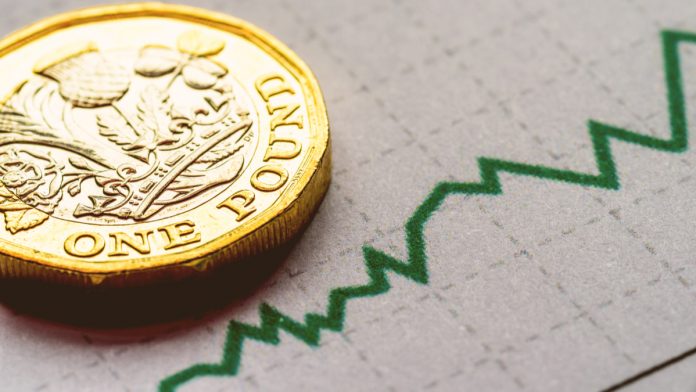Thin bank holiday trading conditions combined with a very light economic calendar saw the pound edge steadily lower versus the euro on Monday. The pound euro exchange rate dropped to a low of €1.1525, close to where it ended the session.The pound was gaining ground in early trade on Tuesday.
| What do these figures mean? |
|---|
| When measuring the value of a pair of currencies, one set equals 1 unit and the other shows the current equivalent. As the market moves, the amount will vary from minute to minute. If the euro amount increases in this pairing, it’s positive for the pound. Or, if you were looking at it the other way around:1 EUR = 0.87271 GBPIn this example, €1 is equivalent to approximately £0.87. This measures the euro’s worth versus the British pound. If the sterling number gets larger, it’s good news for the euro. |
With UK politicians on Easter recess last week, pound traders were able to focus on UK economic data rather than the continuing Brexit drama. Data reaffirmed solid labour market conditions, with wages growing at 3.5% year on year, the fastest pace in over a decade. Strong wages helped retail sales jump to an impressive 6.7% on an annual basis. UK consumers keep spending despite looming Brexit uncertainties. Inflation slightly missed the mark at 1.9% rather than the 2% analysts forecast.
Despite overall upbeat UK data, the pound dipped lower across the previous week. This is because investors do not believe that the Bank of England will hike interest rates prior to the Brexit deadline in October.
| Why do raised interest rates boost a currency’s value? |
|---|
| Interest rates are key to understanding exchange rate movements. Those who have large sums of money to invest want the highest return on their investments. Higher interest rate environments tend to offer higher yields. So, if the interest rate or at least the interest rate expectation of a country is relatively higher compared to another, then it attracts more foreign capital investment. Large corporations and investors need local currency to invest. More local currency used then boosts the demand of that currency, pushing the value higher. |
For the coming week, the focus will return squarely to Brexit as ministers return from the Easter break. Cross party talks have continued in the background, however up to now the news flow doesn’t point to any significant progress. Both sides failing to find any middle ground means talks have as good as stalled.
Euro Steady Ahead Of Quiet Day
The euro moved broadly higher across the previous week. A strong German ZEW Financial Market Survey reading set the common currency off on the right foot. The improvement in sentiment is largely based on the belief that the global economy will develop less poorly than originally predicted.
| Why does strong economic data boost a country’s currency? |
|---|
| Solid economic indicators point to a strong economy. Strong economies have strong currencies because institutions look to invest in countries where growth prospects are high. These institutions require local currency to invest in the country, thus increasing demand and pushing up the money’s worth. So, when a country or region has good economic news, the value of the currency tends to rise. |
The euro continued to climb despite a mixed bunch of PMI readings. The manufacturing PMI’s for the bloc brought with it good and bad news. On the positive front, activity in the manufacturing sector rebounded after falling for eight straight months. On the negative side, the rebound was very modest.
This week investors will focus on the IFO sentiment data to see whether it supports the findings from the ZEW survey. Brexit and progress in US — China trade talks will also be watched closely.
This publication is provided for general information purposes only and is not intended to cover every aspect of the topics with which it deals. It is not intended to amount to advice on which you should rely. You must obtain professional or specialist advice before taking, or refraining from, any action on the basis of the content in this publication. The information in this publication does not constitute legal, tax or other professional advice from TransferWise Inc., Currency Live or its affiliates. Prior results do not guarantee a similar outcome. We make no representations, warranties or guarantees, whether express or implied, that the content in the publication is accurate, complete or up to date. Consult our risk warning page for more details.
This article was initially published on TransferWise.com from the same author. The content at Currency Live is the sole opinion of the authors and in no way reflects the views of TransferWise Inc.





